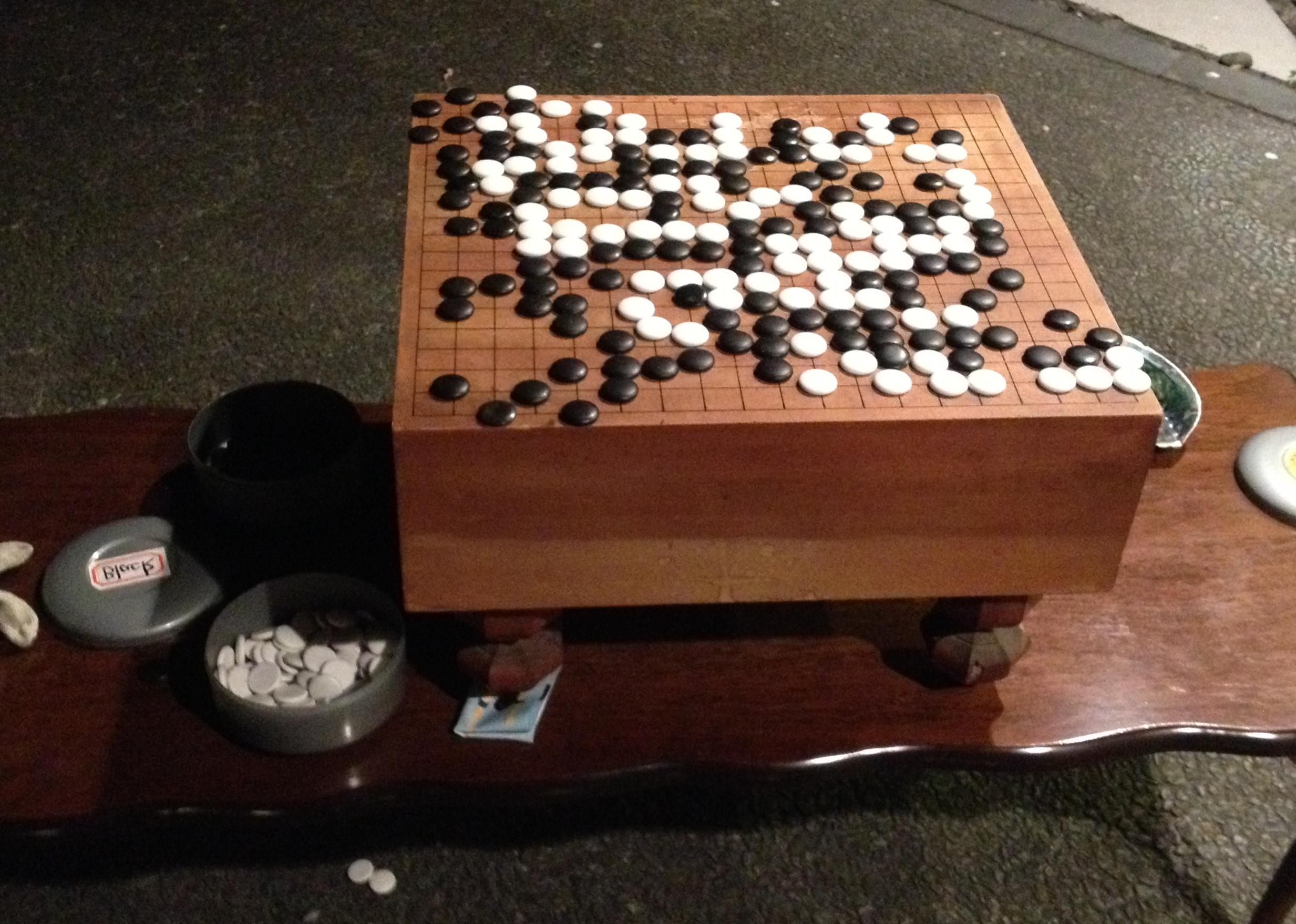Gaming
Mastering the Art of Baduk: Strategies for Success in the Ancient Game of Go

Introduction:
Baduk, the ancient game of Go, has long been revered for its strategic depth and intellectual challenges. As players embark on the journey to master this captivating game, understanding key strategies becomes paramount. In this article, we delve into the tactical intricacies that can elevate one’s Baduk game play and lead to a deeper appreciation for the strategic dance that unfolds on the 19×19 grid.
Opening Moves and Fuseki:
The opening moves, known as fuseki, set the tone for the entire game. Each player aims to establish a solid foundation while probing their opponent’s weaknesses. Successful fuseki involves balancing territorial influence, creating flexible shapes, and adapting to the evolving dynamics of the board. The early moves lay the groundwork for the intricate battles that follow.
Influence and Thickness:
Understanding the concepts of influence and thickness is pivotal in Baduk strategy. Influence refers to the potential of stones to control territory, while thickness indicates a solid group of stones that can exert influence over a significant portion of the board. Mastering the delicate balance between these elements allows players to create formidable positions and control the flow of the game.
Sabaki: The Art of Flexibility:
Sabaki, or flexibility, is a crucial aspect of Baduk strategy. Players must be adept at adapting to their opponent’s moves and changing circumstances on the board. Developing the skill of sabaki involves creating light and efficient groups of stones that can gracefully navigate the complexities of the game, avoiding overcommitment and ensuring strategic flexibility.
Capturing Techniques and Tesuji:
Capturing stones is a fundamental aspect of Baduk, and understanding tesuji, or clever tactics, is essential for success. Players employ various capturing techniques, exploiting weaknesses in their opponent’s positions and turning seemingly disadvantageous situations into opportunities. A keen grasp of tesuji can be the key to gaining a strategic advantage during critical moments in the game.
Endgame Mastery:
As the game progresses, attention shifts to the endgame—a phase where precise calculation and efficient territory management become paramount. Effective endgame play involves accurately counting territory, reducing the opponent’s potential, and securing key points on the board. The ability to convert strategic advantages into tangible territory sets skilled players apart in the final stages of the game.
Life and Death: The Crucible of Survival:
Life-and-death situations arise when groups of stones are in danger of being captured. Recognizing the subtleties of these scenarios is a mark of a skilled Baduk player. Whether defending or exploiting weaknesses, navigating life-and-death situations requires precise calculation and a deep understanding of the interplay between stones.
Learning from Professional Play:
Studying games played by professional Baduk players is an invaluable resource for aspiring enthusiasts. Professional games showcase advanced strategies, innovative tactics, and the nuances of high-level play. Analyzing and emulating the moves of experienced players can accelerate one’s understanding of the game and contribute to overall improvement.
Origins and Evolution:
Baduk’s roots can be traced back to ancient China, where it was known as Weiqi. The game later spread to Korea and Japan, evolving and adapting to different cultural contexts. The rules remained relatively unchanged, emphasizing the balance of power and territory on the board. Over centuries, Baduk became more than just a game; it became a cultural phenomenon, with a profound impact on philosophy, art, and strategy.
The Board and Stones:
The Baduk board is a simple 19×19 grid, offering players a vast canvas for strategic maneuvers. The game involves two players who take turns placing black and white stones on the intersections of the lines. The objective is to control territory by enclosing empty spaces and capturing the opponent’s stones. The simplicity of the components belies the complexity of the game’s strategic depth.
Strategic Complexity:
What sets Baduk apart from other board games is its unparalleled complexity. With more possible board configurations than there are atoms in the observable universe, each game presents a unique challenge. Players must balance offense and defense, foreseeing the consequences of their moves several turns ahead. The concept of “thickness” and “influence” adds another layer of depth, requiring players to understand the subtle nuances of the game.
The Surrounding Game:
Baduk is often referred to as “The Surrounding Game” because of its emphasis on encircling territory. The strategic battle unfolds as players vie for control, seeking to surround and capture territory while simultaneously defending their own. This dynamic creates a mesmerizing ebb and flow, making every move a critical piece of a larger puzzle.
Cultural Impact:
Beyond its strategic appeal, Baduk has left an indelible mark on various aspects of Asian culture. It has inspired countless works of art, literature, and philosophy. The game’s emphasis on balance, patience, and adaptability has influenced strategic thinking not only on the board but also in broader contexts, including business and military strategy.
Global Resurgence:
While Baduk has deep historical roots in East Asia, its popularity has surged globally in recent decades. International tournaments, online platforms, and a growing community of enthusiasts have contributed to the game’s resurgence. The game’s inherent simplicity, combined with its strategic depth, makes it accessible to players of all skill levels, fostering a diverse and engaged global community.
AI and Baduk:
The advent of artificial intelligence has brought a new dimension to Baduk. In 2016, the AI program AlphaGo made headlines by defeating the reigning world champion, Lee Sedol, in a five-game match. This historic event showcased the potential of AI in mastering complex strategic games and pushed the boundaries of what was previously thought possible.
Conclusion:
In a world filled with ever-evolving forms of entertainment, Baduk stands as a timeless testament to the enduring appeal of intellectual challenge. Its ancient origins, strategic complexity, cultural impact, and global resurgence all contribute to the mystique that surrounds the game. As enthusiasts continue to gather around Baduk boards, whether physical or virtual, they engage in a tradition that spans centuries—a tradition that transcends borders and continues to captivate the strategic minds of players around the world.
Gaming
Online Casino Games Around the World: A Look at Global Variations

Much has changed about casino gaming in the last two decades. Perhaps the most noticeable transformation is in how mobile devices have replaced traveling as the most popular way of enjoying a gambling experience. Gone are the days of booking return tickets to Macau or Vegas just for the thrill of wagering.
Thankfully, casino games have managed to retain their outstanding variety. Although most gaming options are now online, they still come in various types and variations. Below, we highlight some popular casino games, their variations around the world and how you can play them.
Variations of the Most Popular Online Casino Games
Most online gambling platforms already offer a compelling mix of entertainment and financial rewards through their gaming options. But that’s not all there is to the experience. The best casino games like online pokies, roulette, craps, baccarat and even live casino titles have rich histories that make them more fascinating.
Part of this history is their variation. And in this section, we look at some of the most loved casino games and how their varieties shape rules and payouts.
Slots
Sometimes known as pokies, slots are arguably the most popular online casino games globally. Players can choose from an exciting range of themes and gameplay mechanics with this game type. Below are a few noteworthy slot variations available at top casinos.
- 3D slots
- Progressive jackpot
- Three-reel slots
- Video slots
- Multi-payline slots
- Cascading reels slots
- Megaways
While this list is not exhaustive, it is helpful to know that the variant of slot ultimately determines the design and mode of play.
Blackjack
Since its introduction in France in the early 18th century, blackjack has grown to become a must-have table game at online casinos. The game comes in seven major variants, namely the European blackjack, American blackjack, Perfect Pairs, Spanish 21, Vegas Strip blackjack, Free Bet and Blackjack Switch. Each of these variations feature unique rules and betting options, with each promising its fair share of real money returns.
Baccarat
Like blackjack, baccarat is also an online casino card game. Here, you bet on either the banker or player to hold the hand closest to nine. Interestingly, there are up to five variants of the game. They are namely Punto Banco, 3-card baccarat, Chemin de Fer, Mini Baccarat and Baccarat Banque. Newer versions like No Commission, European and American baccarat now exist at online casinos, too.
Video Poker
Compared to most other entries on this list, video poker requires a fair deal of skill and strategy from players. Not only does it come in engaging game variations, but there is also a wide array of betting strategies and rules. The most common video poker variation is the Deuces Wild in which a deuce replaces any card and transforms 2s into wild cards. Other variants include the Joker’s Poker, Jacks or Better, Triple Play and Anything’s Wild.
Roulette
Away from card games, roulette is another exciting option with a rich history and variety. To win, players bet on the numbered spots of a revolving wheel that a ball would land. For classic retail casino goers, the available variants are European, American and French roulette. Online varieties are, however, slightly numerous, with Mini Roulette, Multi-Wheel Roulette, Lightning Roulette and Double Ball Roulette available.
Other Casino Game Varieties
There are several specialty games at online casinos that also have come in variations. A good example is online craps. You’d typically find Street Craps and Bank Craps at gambling sites.
Live casino games boast a diverse selection as well. However, these are typically just regular online casino gaming options with the real-time competitive twist of live streaming.
Wrapping Up: Explore Casino Games to the Fullest
Casino gaming never has to be monotonous. Even if you have a favorite game, there’s always room to spice things up. Thankfully, with lots of variations available at online casinos, you can tailor existing games to your preferences. So, whether you seek a heart-pounding challenge or just an opportunity to win extra cash, there’s a variation out there for you to explore.
Gaming
Online Casino Fed Up with Scams Releases Full List of Promotion Codes

Here at iGaming, the excitement is unbounded, and winning is only a spin away. In this digital entertainment space, Yebo Casino is the best online casino in South Africa, providing an unmatched range of games to suit every taste. Yebo Casino offers a large selection of games that guarantee hours of thrill and enjoyment, ranging from traditional table games like blackjack and roulette to cutting-edge slots and specialty variations. Yebo stands out from the others mostly for its variety of bonus codes, which are made to take your game to new heights.
At Yebo Casino, bonus codes are more than just promotional offers. With all of their own and unique codes on the Yebo casino website, they are gateways to enhanced gameplay, increased winnings, and endless excitement. Whether you’re a seasoned player or new to the world of online gaming, our diverse range of bonus codes has something for everyone. From welcome bonuses to VIP rewards, and free spins to match bonuses, Yebo Casino ensures that every player is treated to a gaming experience like no other. With our commitment to transparency and fairness, you can rest assured that you’re getting the most out of every bonus code redeemed.
Exploring Yebo Bonus Codes
Enter the arena of Yebo Casino’s bonus codes, where limitless possibilities await. Our unique and diversified bonus codes are designed to accommodate players of all skill levels, guaranteeing that everyone can experience the excitement of winning. Whether you prefer slots, table games, or specialty varieties, Yebo Casino has a bonus code for you. Our deposit bonuses allow players to increase their bankroll with more cash or free spins, whereas our match bonuses ensure that every deposit is matched with a big payout. And with our ongoing promotions and special deals, there’s always something new and interesting to discover at Yebo Casino.
Discovering Fresh Yebo Casino Bonus Codes
Yebo Casino believes in keeping things interesting and engaging. You should always try to find casinos that have free spins, bonuses, promotions, codes, and more! That’s why we’re continuously changing our bonus code offerings to give our users something new to look forward to. Whether it’s a seasonal promotion, a themed bonus code, or a unique deal for VIP players, Yebo Casino always has something fun going on. Our team works tirelessly to produce unique and entertaining bonus codes that will improve your gaming experience and increase your wins. Claim your bonus quickly and easily at Yebo Casino, thanks to our user-friendly design and responsive customer care.
Understanding How to Claim Your Bonus
Claim your bonus at Yebo Casino quickly and easily. Simply follow our step-by-step guide to redeeming bonus codes, and you’ll be on your way to better gameplay and bigger wins in no time. Our user-friendly interface makes it simple to traverse our promotions page and choose the bonus code that is best for you. And with rapid customer care accessible to help you every step of the way, you can be confident that help is always a click away. So, why wait? Claim your bonus at Yebo Casino now and start winning big.
Answering Yebo Bonus Code FAQs
Have questions about our bonus codes? We have answers. From comprehending the terms and conditions to optimizing your profits, our thorough FAQ section explains all you need to know about Yebo Casino’s bonus codes. We recognize that bonus codes can be complex at times, so we’ve produced a detailed guide to help you navigate our promotions and make the most of each deal. With clear and comprehensive explanations, you’ll be able to start using bonus codes like a pro in no time.
Exploring Online Slots for Real Money
Are you ready to take your gaming to the next level? At Yebo Casino, you may play real money online slots. With so many slot game themes, features, and jackpots to choose from, the possibilities are limitless. Whether you prefer classic fruit machines or advanced video slots, Yebo Casino has something for everyone. Our games are powered by top software suppliers such as Realtime Gaming and Betsoft, ensuring a smooth and immersive gaming experience each time you play. And with our progressive jackpot network, you can win life-changing rewards with only one spin.
Maximizing Your Experience: Tips and Strategies
Are you looking to increase your wins at Yebo Casino? We have you covered. From properly managing your bankroll to selecting the best games to play, our tips and methods will help you get the most out of each gaming session. Our specialists have put together a list of exclusive tips to help you navigate our games and claim your bonus codes with ease. Whether you’re a beginner or a seasoned pro, our tips and methods will improve your gaming experience and boost your chances of winning big.
Conclusion: Elevate Your Gaming Journey with Yebo Casino
In the realm of online gaming, Yebo Casino is a shining example of unmatched potential and excitement where fortunes can change with a single spin. Being the best online casino in South Africa, Yebo offers a wide range of games to suit every taste and desire. The many bonus codes available are at the heart of its appeal; they all open doors to better gaming, bigger payouts, and never-ending excitement. These well-designed codes are easily accessible on the Yebo Casino website and highlight the dedication to justice and openness that characterize the Yebo experience. Yebo’s wide selection of bonus codes guarantees that every visit promises adventure and reward, regardless of experience level in the digital gaming world.
Entering the world of Yebo Casino’s bonus codes takes players on an innovative, varied, and seemingly endlessly possible adventure. Yebo offers promotions that are as varied and alluring as deposit bonuses that increase bankrolls and match bonuses that quadruple wins. Yebo Casino is committed to keeping the experience interesting and novel, hence it always adds new bonus offers so that each visit is exciting and full of surprises. Claim these incentives with ease thanks to an intuitive interface and attentive customer service, allowing players to concentrate on what really counts—the excitement of the game and the possibility of winning. Yebo Casino shows up in the ever-changing world of online gaming as a partner in the quest of thrilling victories and life-changing experiences rather than just a destination.
Gaming
Navigating The World Of Slot Online: A Guide To Responsible Gaming

Nowadays, many people are playing slot online games to enjoy and have a good time from the comfort of their homes. However, it is important to go for gaming with a responsible point of view. In this article, we will explore how to play slots online responsibly and its importance.
Understanding Responsible Gaming:
Responsible gaming is important because it enables safe and enjoyable playing. It basically includes being in control of your gambling habits, making choices based on knowledge as well as taking notes when you might need help before things get worse.
Following the rules and regulations is just a part of being a responsible gamer; creating good experiences for oneself as well as others is also important.
Choosing Reputable Platforms:
When starting your journey in slot online gaming, it is vital that you choose reputable platforms that are licensed. Look out for online casinos regulated by established authorities that display certificates confirming their compliance with uncompromising fairness and security regulations.
Opting for trustworthy platforms guarantees a secure playing environment where both your personal information and finances are saved from possible threats.
Setting Limits:
One of the main methods of responsible gambling involves setting limits as well as sticking to them. Make sure you develop a game budget within which you operate and never exceed the set spending limit no matter how tempting it might be.
Additionally, place boundaries on the time spent playing games thus avoiding extremes. These boundaries are meant to create equilibrium between one’s life and the playing session hence minimizing chances of losing money anyhow.

Understanding The Odds:
Before engaging yourself with slot online games take some time to learn about the odds or chances involved. Slots work through random number generation (RNG) algorithms where every spin result is determined separately by itself.
Though winning might be achieved, one should not expect much since most times the odds are always high against the player.
Recognizing Signs Of Problem Gambling:
Self-awareness is important in recognizing signs of problem gambling. Common symptoms include being obsessed with betting, trying to recover lost money persistently without success, and ignoring other interests and obligations to play a game.
Similarly, the urge to gamble may indicate addictive gambling syndrome if one experiences withdrawal whenever unable to gamble. It is important for one to recognize such alarm bells at an early stage so that they can seek guidance or treatment if there seems to be a problem with gambling.
Taking Breaks:
You should take regular breaks to stay fit and avoid exhaustion. Give some time for other things like exercising, hobbies, and socializing with friends and family outside of gaming. These activities not only enable one to take a break from gaming but also promote personal well-being and satisfaction.
These inclusions into your gaming schedule ensure that you get to keep a balanced outlook on life while enjoying playing games rather than getting addicted to them.
Utilizing Self-Exclusion Tools:
Most online casinos provide self-exclusion tools for responsible gambling purposes. Such options allow gamblers to stop themselves from logging on to the websites for some period of time as specified.
Whenever you feel that it is hard to control your gaming habits, consider making use of self-exclusion tools that let you pause playing games temporarily.
In addition, there are sites with opportunities for introducing deposit limitations or applying cooling-off features to manage casino-related activities more efficiently.
Avoiding Emotional Gaming:
Your emotions can disrupt decision-making while gaming. If you are feeling sad, stressed or drunk then stay away from playing because at that time you will not be able to play well and therefore risk your money. It is important to be rational and calm to make better decisions when gambling.
Seeking Support:
It is important that if you have this condition or know someone who does, go out and look for help regarding it. There are numerous sources that offer advice, guidance, and therapy services for individuals who have been affected by gambling problems.
You can call them privately or visit their offices in person; in any case, there is a possibility of arranging a session with an expert who would listen and support those willing to recover their self-control.
Conclusion:
Responsible gambling is something that requires constant mindfulness, self-awareness, and proactive decision-making within everyone’s life journey.
Understanding how responsible gambling works by setting limits and asking for help when necessary enables you to enjoy slot games safely and happily.
Remember to maintain your health above all by doing hobbies and other things apart from gambling. Besides, every game should be approached with a sense of moderation and mindfulness.
Slot gaming may become an exciting way to entertain yourself while minimizing the threats and possible negative impacts by sticking to responsible gambling practices.
-

 Finance1 year ago
Finance1 year agoProfitable Intraday Trading Advice For Novices
-

 Gaming1 year ago
Gaming1 year agoSubway Surfers Unblocked | Subway Surfers Unblocked 66
-

 Internet1 year ago
Internet1 year agoWelcome to banghechoigame.vn – Your One-Stop Destination for Online Gaming Fun!
-

 Gaming1 year ago
Gaming1 year agoMinecraft Unblocked Games 66 | Unblocked Games Minecraft
-

 Internet1 year ago
Internet1 year agoPremium Games Unblocked: Unleash Your Gaming Potential
-

 Gaming1 year ago
Gaming1 year agoGoogle Baseball Unblocked | Google Doodle Baseball Unblocked 66
-

 Gaming1 year ago
Gaming1 year agoTunnel Rush Unblocked | Tunnel Rush Unblocked 66
-

 Gaming1 year ago
Gaming1 year agoMoto X3m Unblocked: The Ultimate Bike Racing Game































